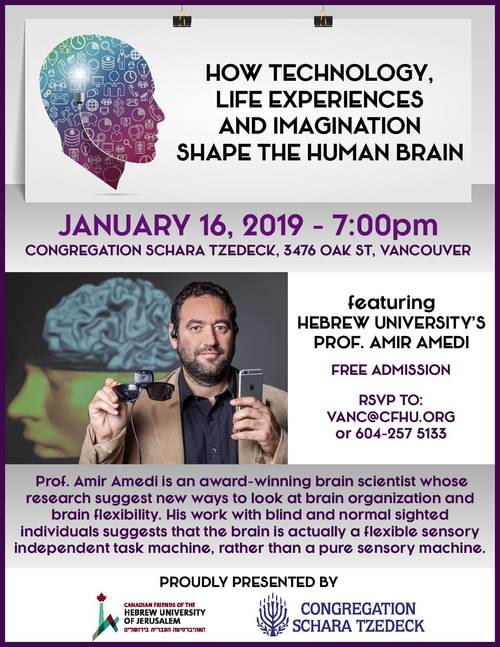I have two items, one featuring past events and one featuring an upcoming January 2019 event.
Brain Talks
The Brain Talks series folks featuring a bunch of Dept. of Psychiatry types and their ilk at the School of Medicine at the University of British Columbia sent me a December 21, 2018 announcement (via email) about videos featuring past talks,
Haven’t been able to make one of the last severals BrainTalks? Luckily,
we’ve been filming!
HAVE YOU MISSED ONE OF THE LAST SEVERAL BRAINTALKS?
Luckily, we’ve been filming the recent talks and several are now
accessible! Follow our Facebook page @UBCBraintalks to stay up-to-date
with the most recent videos. Our October series on Epigenetics and Early
Life Experiences is now live.
Otherwise, video content will be uploaded to our website at
braintalks.ubc.ca as made available, under the ‘past events’ tab.
Event announcements for 2019 coming soon!
Before leaping off to the video of past events (A Christmas Carol, anyone?), here’s more about Brain Talks from their homepage,
BrainTalks is a series of talks inviting you to contemplate emerging research about the brain. Researchers studying the brain, from various disciplines including psychiatry, neuroscience, neuroimaging, and neurology, gather to discuss current leading edge topics on the mind.
As an audience member, you join the discussion at the end of the talk, both in the presence of the entire audience, and with an opportunity afterwards to talk with the speaker more informally in a catered networking session. The talks also serve as a connecting place for those interested in similar topics, potentially launching new endeavours or simply connecting people in discussions on how to approach their research, their knowledge, or their clinical practice.
For the general public, these talks serve as a channel where by knowledge usually sequestered in inaccessible journals or university classrooms, is now available, potentially allowing people to better understand their brains and minds, how they work, and how to optimize brain health.
Here’s a partial list of what you’ll find on the past events video page,
Trauma Recovery and the Nervous System
… Leslie Wilkin, MSW – The Importance of Engaging Social-Relational Systems in Trauma Treatment Edward Dangerfield – Trauma and Subconscious Breathing Patterns November 27, 2018 Speakers: Dr. Lynn Alden // Current Treatment Perspectives of PTSD PTSD has been described as a […How to Prevent Burnout
… Dr. Maia Love – Preventing Burnout Dr. Marlon Danilewitz – Burnout in Health Care Professionals Speakers: Dr. Maia Love – Burnout prevention Dr. Marlon Danilewitz – Burnout in Health Care Professionals Tuesday, April 24th at 6pm at Paetzold Auditorium, VGHEpigenetics and Early Life Experiences
… Dr. Michael Kobor – Epigenetic Consequences for Chronic Disease and Mental Health Dr. Liisa Galea – Maternal Adversity: different effects on sons and daughters Dr. Adele Diamond – Adverse Childhood Experiences and the Brain October 22, 2018 Speakers: Dr. Michael […Pain: The Mind Body Connection
Mar 24, 2016 @ 6pm Speakers: Dr Tim Oberlander, Dr Theresa Newlove, Dr Elizabeth Stanford, & Dr Murat Aydede…
Enjoy these videos and more here
Shaping the brain
Israeli research Amir Amedi is coming to town for a Wednesday, January 16, 2019 talk according to a poster on the Congregation Schara Tzedeck website,

I found a little more information about Amedi on his Hebrew University of Jerusalem profile page,
Short bio sketch:
Amir is an internationally acclaimed brain scientist with 15 years of experience in the field of brain plasticity and multisensory integration. He has a particular interest in visual rehabilitation. He is an Associate Professor at the Department of Medical Neurobiology at the Hebrew University and the ELSC brain center, He is an Adjoint research Professor in the Sorbonne Universités UPMC Univ Paris 06, Institut de la Vision. He holds a PhD in Computational Neuroscience (ICNC, Hebrew University) and Postdoctoral and Instructor of Neurology (Harvard Medical School). He won several international awards and fellowships such as The Krill Prize for Excellence in Scientific Research, the Wolf Foundation (2011), The international Human Frontiers Science Program Organization Post docatoral fellowship and later a Career Development award (2004, 2009), the JSMF Scholar Award in Understanding Human Cognition (2011), and was recently selected as a European Research Council (ERC) fellow (2013).
If you want to get a sense of what type of speaker he is, Amedi’s profile page also hosts his (circa 2012) TED X jerusalem talk. Enjoy!